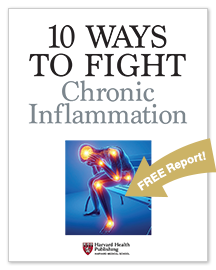By the way, doctor: What can I do about a high coronary calcium score?
Calcium itself doesn't cause atherosclerosis, but it's involved in the formation of atherosclerotic plaques, which develop in response to damage to the artery usually caused by LDL (bad) cholesterol. The damage triggers inflammation, and calcium is deposited as part of the body's normal response to inflammation. As the plaques enlarge, they may narrow an artery, or they may rupture. A blood clot can form on a ruptured plaque, block the artery, and cause a heart attack.
To continue reading this article, you must log in.
Subscribe to Harvard Health Online Plus (HHO+) to unlock expert-backed health insights, personalized tools, and exclusive resources to feel your best every day.
Here’s what you get with your HHO+ membership:
- Unlimited access to all Harvard Health Online content
- 4 expertly curated newsletters delivered monthly
- Customized website experience aligned to your health goals
- In-depth health guides on topics like sleep, exercise, and more
- Interactive features like videos and quizzes
- Members-only access to exclusive articles and resources
I’d like to subscribe to HHO+ for $4.99/month to access expert-backed content to help make smart, informed decisions about my well-being.
Sign Me UpAlready a member? Login ».
Disclaimer:
As a service to our readers, Harvard Health Publishing provides access to our library of archived content. Please note the date of last review or update on all articles.
No content on this site, regardless of date, should ever be used as a substitute for direct medical advice from your doctor or other qualified clinician.












